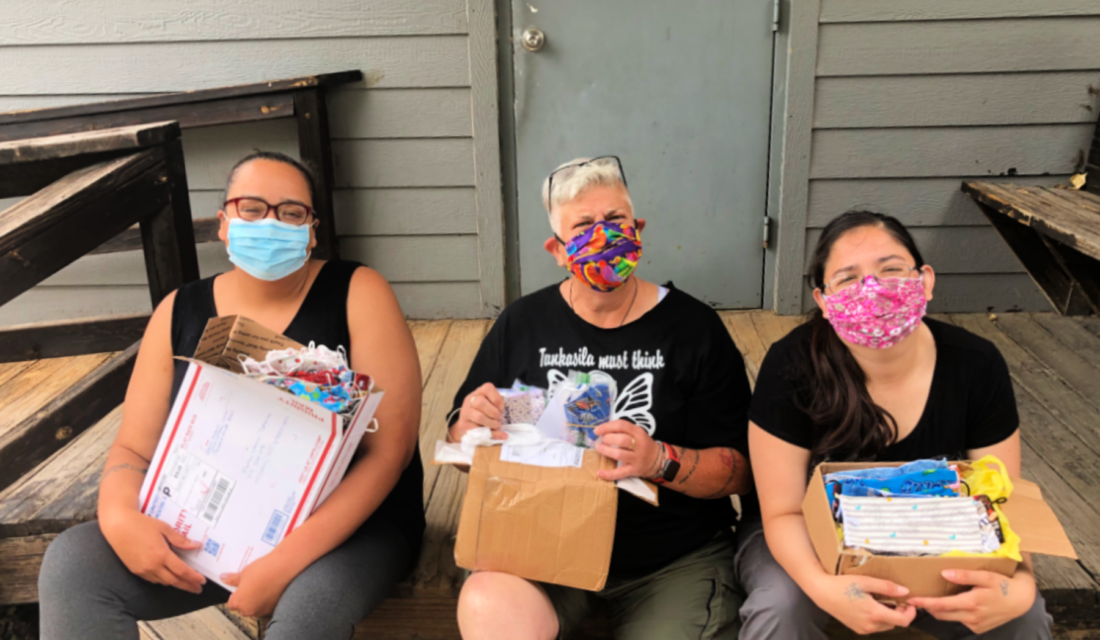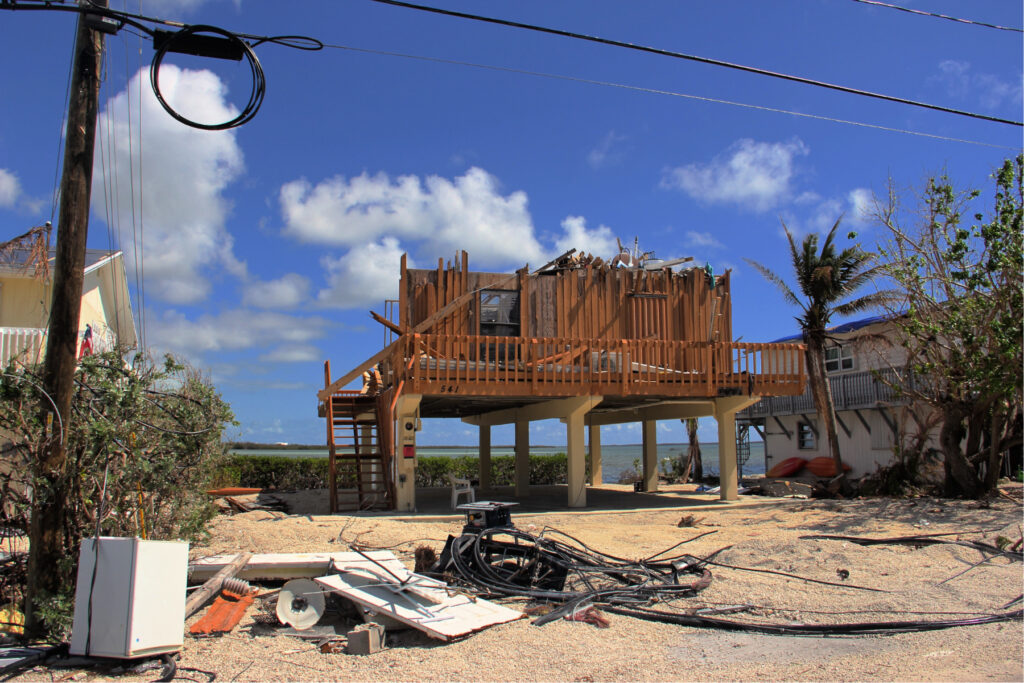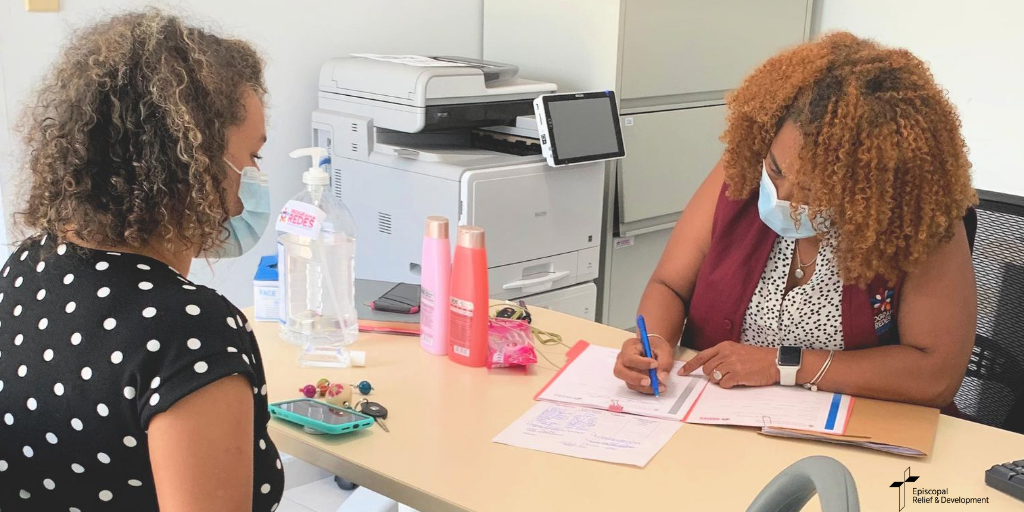Building Relationships, Justice and Hope During Disasters

Recently, we sat down for a conversation with Lura Steele and Tamara Plummer, Program Officers for our US Disaster Program, to discuss disaster trends, preparedness and resiliency. Read along as they share their hope for disaster-resilient communities.
A disaster is defined as any sudden event that overwhelms a community’s capacity to recover on its own. Factors such as infrastructure and location play a part in determining if something is a disaster. This definition also includes violence and other human-caused events.
Episcopal Relief & Development: Thank you both for making time for this conversation today. Let’s jump right in. What are some disaster trends or changes you’ve seen over the last few years? Who is affected by these trends and changes?
Lura: One of the things that I’m noticing is that hurricane season and fire season are expanding. We used to be able to anticipate major events during certain months, but changing climates have really altered the patterns we see in natural disasters. We are also seeing the effects of crumbling infrastructure, whether that be dam or levee failures, poisoned water in Flint or any other number of things.
Tamara: And with hurricanes and fires, we often see, for example, isolated older adults as one of the most vulnerable. Many older adults live alone and may not have access to the internet to know when to evacuate, or they no longer drive. Some have kids that live far away. Normally, they can get around town to church and get groceries and live a very full, vibrant life. But when it comes to evacuation or sheltering-in-place, they may need a hand.
Lura: You’re so right. When it comes to vulnerability, it’s not about your state of being, but a situational context that influences how a person experiences a disaster. Based on data, we often see that people who live in geographically isolated areas, such as older adults, undocumented immigrants and homeless people are particularly vulnerable. Factors like race, class and gender can also influence how folks experience disasters. We would be remiss to not say that COVID-19 has also increased the level of vulnerability for many people. COVID-19 has caused food insecurity for families and sharply reduced income for many people. The emotional trauma from this pandemic will also take time to heal.
Tamara: That’s where the Church can really step in. We can also tap into the generous characteristics of God, and help our neighbors prepare and respond.
Learn more about how disasters affect vulnerable groups
Episcopal Relief & Development: I’m glad you mentioned preparedness. What role does preparedness play in disaster resilience, especially for vulnerable groups?
Lura: Imagine resilience and your overall functioning as a water tank. There’s a certain level of water in the tank and when there are stressors, drains open and your level of water, or well-being, goes down. Keeping your water tank full maintains a bigger distance to travel before you hit empty. Preparedness allows you to weather the shocks of your system better than if you were running on empty. We know this intuitively to be true. If you are living paycheck-to-paycheck and you get a shift canceled, that can be catastrophic, but if you have a financial buffer and someone cancels a shift, you might be fine.
Tamara: And also thinking about the frequency of disasters. If someone had a buffer for the last disaster that was depleted, they may not have had time to refill their tank, so to speak. That can be true for individuals, communities, states and even at national and global levels.
Build a more resilient community
Episcopal Relief & Development: That’s a great way to put it, a lot of good points to digest there. Last question. You’re both Episcopalians, and it’s powerful that you connect preparedness and response to church ministry. Can you share a little bit about where you see the connection?
Tamara: I got into this work because I love the Church. I think my favorite questions to ask people when working on the Episcopal Asset Map is, “How are you showing God’s love in the world?” and “How are you engaging your faith in the community?” I love when Episcopalians give examples of their ministries, like hosting AA meetings or knitting socks for imprisoned people and being able to tell them that what they’re already doing as part of their faith practice is disaster prep. By building relationships before a disaster happens, churches are better equipped to walk with communities after one strikes. By having relationships, it’s easy to identify volunteers or people who may need assistance. This kind of relational disaster prep isn’t complicated or beyond a congregation’s comfort zone; it simply is doing God’s work.
Lura: For me, God’s dream for the world is one of justice and love. One of the things that I’ve learned repeatedly over and over again in this job is that disasters have a way of pulling the curtain back and revealing the injustices like racism, domestic violence, substance abuse and income inequality that already exist in our communities and then making them worse. If we are people that believe and aspire to be a just and loving society, we have a role to play in creating and building it. If we can continue strengthening communities before and after a disaster strikes, we’re doing a big part in making God’s dream for the world come true.
Episcopal Relief & Development: It’s really great to hear your vision, and to know it’s accessible. May the Lord go with you as you continue to do this work.
Help someone else prepare this season

Image 1: The Rev. Dr. Lauren Stanley and Rosebud Episcopal Mission volunteers deliver COVID-19 related supplies to Sioux tribe members in need.
Image 2: A damaged and uninhabitable Florida Keys home shown after Hurricane Irma made landfall in 2017.
Image 3: Mayra Cantres of Programa REDES performs intake for a mom and her baby to assess need.




